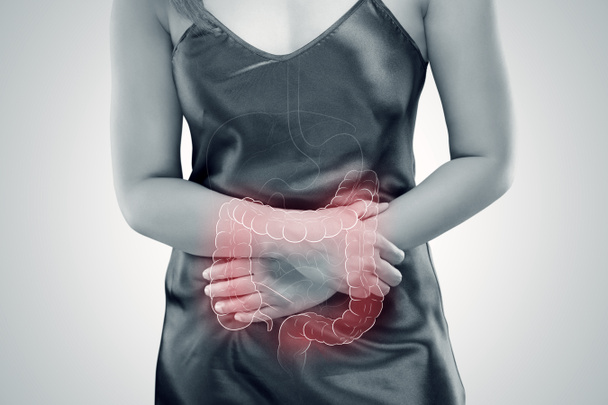
Living with Ulcerative Colitis: Treatment Options, Diet Tips, and Support for IBD
Stay Updated
Get the latest gut health tips and research delivered straight to your inbox.
By subscribing, you agree to receive our newsletter. You can unsubscribe at any time.
It feels like both just yesterday and so long ago that I was diagnosed with Ulcerative Colitis. After years of uncertainty and fighting for answers, I finally knew what was going on. Waking up from my colonoscopy and hearing the diagnosis was both a relief and a little overwhelming. It was comforting to have an answer, but at the same time, I didn’t know much about the disease or what my future would look like.
Looking back, there are a few things I wish someone had told me when I first got my diagnosis:
1. Ulcerative Colitis is a lifelong journey.
Ulcerative Colitis is an autoimmune disease that affects the large intestine and rectum. While some people go into remission and stay symptom-free for years, others—like me—may find themselves in remission for only a few months at a time. The key to managing IBD effectively is to stay on top of treatments and care, even when you feel good. Regular monitoring and lifestyle adjustments are essential to prevent flare-ups.
2. There are many IBD treatment options out there.
From medications and steroids to biologics and even surgery, there are more ways than ever to manage Ulcerative Colitis. The medical world is constantly evolving, and if one treatment doesn’t work, there’s a good chance another will. IBD treatment options are vast, and it’s all about finding what works for you. When medical treatments stop working, surgery may be an option, which sometimes involves removing the colon and rectum entirely. Always keep exploring new treatments with your healthcare provider.
3. It’s ok to prioritize your health during flare-ups.
IBD flare-ups can feel all-consuming. During those times, it’s so important to put your health first. Resting, staying hydrated, and managing stress (as much as possible—easier said than done, I know!) can make a huge difference. Don’t feel guilty for saying no to things that might make you feel worse. I found comfort in taking long baths, using heating pads, and binge-watching my favorite shows. These small acts of self-care can be crucial during challenging flare-ups.
4. You are not alone in the IBD community.
Finding a support system when you’re dealing with a chronic illness like Ulcerative Colitis is so important. There are online communities full of people who understand exactly what you’re going through. Sharing experiences, venting, and receiving support from others who get it was such a lifeline for me. You can also find in-person IBD support groups through organizations like the Crohn’s and Colitis Foundation. IBD community support can be a game changer, reminding you that you’re not in this battle alone.
I’ve learned so much along the way, and while the journey isn’t always easy, you’re stronger than you think. Keep going, and know that there are brighter days ahead!
Frequently Asked Questions (FAQ)
● What triggers an IBD flare-up?
Flare-ups can be triggered by a variety of factors, including stress, certain foods, medications, or even infections. It’s important to track IBD symptoms and work with your doctor to identify triggers specific to you.
● What is the best way to reduce IBD symptoms?
A balanced IBD diet, proper hydration, managing stress, and regular medical check-ups are key to reducing symptoms. Medications and biologics also play a major role in symptom management.
● How can I manage stress with IBD?
Managing stress is crucial for people with Crohn’s disease and Ulcerative Colitis. Meditation, yoga, and even deep breathing exercises can help reduce stress levels. It’s also important to rest when necessary and not overextend yourself during flare-ups.
● Can you live a normal life with IBD?
Many people with Crohn’s disease and Ulcerative Colitis live fulfilling, normal lives, especially with the right treatment plan and support. Staying proactive with your health and seeking the proper care can make a huge difference.
● What foods trigger IBD symptoms?
Common foods that may trigger symptoms in people with IBD include dairy, high-fat foods, spicy foods, and foods that are hard to digest. Working with a dietitian to create an IBD-friendly diet can help manage symptoms.
● How do I get involved in the IBD community?
There are plenty of online platforms where you can connect with others who are living with IBD. The Crohn’s and Colitis Foundation and other organizations also offer local support groups.
Final Thoughts on Managing IBD
Living with Ulcerative Colitis or Crohn’s disease is undoubtedly challenging, but it doesn’t mean you can’t live a full, meaningful life. The right treatment options, a balanced IBD diet, proper stress management, and a strong support system are all part of the equation. Remember, you’re not alone on this journey, and there are always new treatments and strategies emerging to help you feel better.
Stay connected, stay proactive, and remember that brighter days are ahead.
Stay Updated
Get the latest gut health tips and research delivered straight to your inbox.
By subscribing, you agree to receive our newsletter. You can unsubscribe at any time.
Related Posts

Managing Ulcerative Colitis: My Personal Journey with IBD Treatment Options and Surgery
I was diagnosed with Ulcerative Colitis (UC) in 2019, and my journey since then has been full of ups and downs as I’ve tried to manage this chronic illness. Over the past five years, I’ve explored various IBD treatment options and, unfortunately, had to undergo two surgeries. Finding the right treatment has been a constant struggle—every medication seemed to work for a few months before losing its effectiveness. Here’s a look at the IBD management strategies I’ve tried, and my personal experience with each one.
Eating with IBD: A Friendly Guide to Gut-Happy Foods

Anxiety Management When Living With IBD
Helping people with IBD find it easier to leave the house